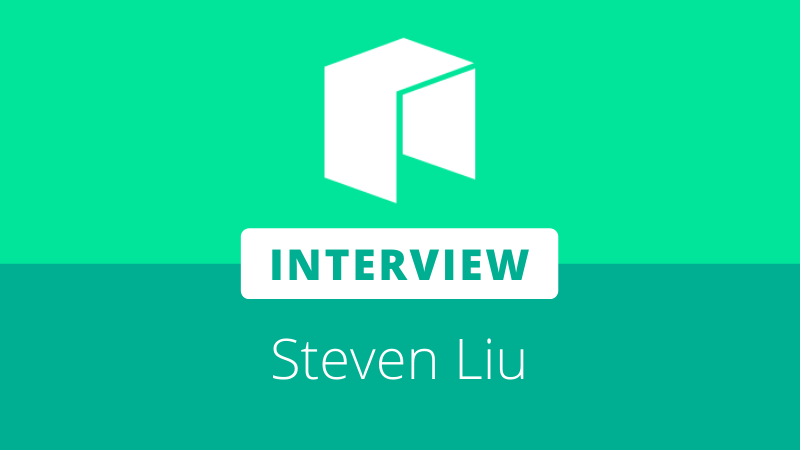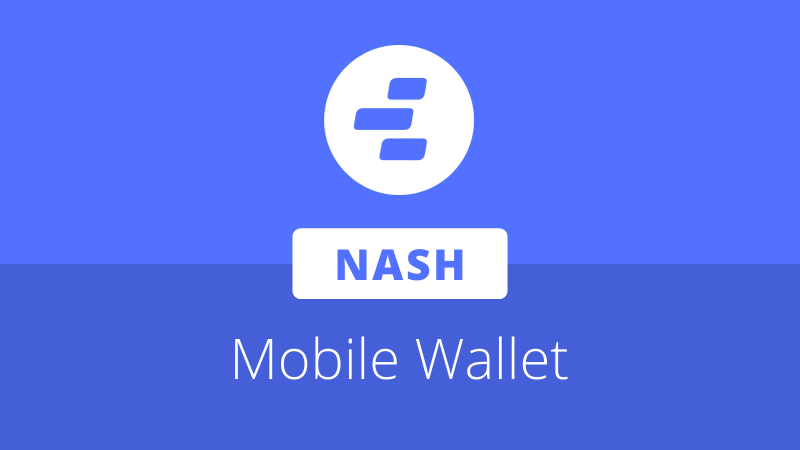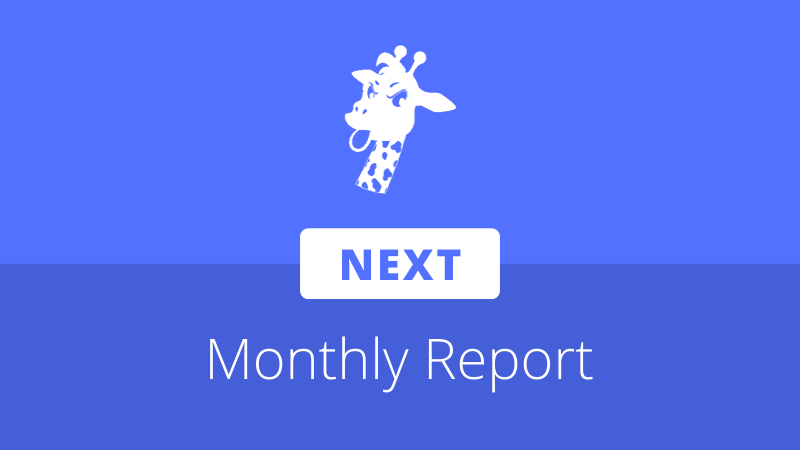
Funding and community support have been important considerations for every blockchain that has followed in Bitcoin’s footsteps. All projects attempt to survive and develop over time; for Bitcoin and Dogecoin, official funding mechanisms don’t exist at all. In other blockchain protocols such as Dash and Zcash, central funding is included as part of each new block mined. Yet other blockchain projects have been launched by seed funding (Ripple, Stellar) or crowdfunding (Ethereum, Neo) and have also set aside an allotment of project tokens allocated for development.
Many open-source cryptocurrency projects have based their foundations on the Linux Foundation, which is generally considered to be the most successful open-source software foundation. In most cases, the central foundation of a blockchain is heavily involved in project governance and guidance for their communities. Many blockchains are born from centralized development teams and then aspire towards becoming decentralized, permissionless, and community-led.
Community leadership requires a strong and engaged community, and so the Neo blockchain’s governing body, the Neo Foundation, is tasked with supporting one. The Neo Foundation counts just four members in total: Neo founders Da Hongfei and Erik Zhang, communications director Grace Gui, and technologist Steven Liu.
Neo News Today’s (NNT) Colin Closser reached out to Shanghai, China to speak with Steven Liu of the Neo Foundation. The two discussed Neo’s global development community and the upcoming development of the Neo protocol.
NNT – Colin: How did you get involved with the Neo blockchain? It seems like you’re pretty high up — You run the Neo Foundation with Grace, Da, and Erik. So, how did you get started with the Neo blockchain?
Steven Liu, Neo Foundation: I actually joined Neo, the NGD office in 2018. So, in October, I had just worked a little more than one year. I joined Neo, just by chance. I actually joined the cryptocurrency world in the end 2017. Before that, I really only knew Bitcoin, and at the end of 2017 I knew a lot, like Ethereum, and EOS. I knew Neo, but I didn’t know the details of Neo.
In 2018, I began to do some development – my personal interest. At first I started off doing some development on Ethereum and EOS. And then, I thought, “Well, blockchain is a very good thing, and I’m interested in that.” So I started to think about finding a full-time job, and some of my friends recommended to me that Neo has the NGD [Neo Global Development] office, based in Shanghai.
I’m based in Shanghai, and I was a software developer before, and so I took a new job at the NGD office. That’s the reason, the story of how I joined the NGD office.
NNT – Colin: What role did you join as? I looked you up on LinkedIn, and you’re listed as a “Technologist” there. But other people say that you’re a software developer, or even a core dev. How would you describe your role?
Steven: My role — that was quite different in the beginning. In the beginning, I was a software developer working in the R&D department. At first, my job was code analysis, of the Neo code, and writing documentation and doing some tests. I was also developing some smart contracts. Of course, we have a lot of external projects who were going to develop on Neo. I was learning how to write smart contracts and asking questions for them.
And during that time, I was also getting involved and spending more time with the community projects. Because a lot of things are developed by the community, for instance, the neon-js by COZ, or the O3 wallet by O3 team. I had to use all of them, I always had questions with them because these things were not familiar to me. At that time, I think I was the one who was most familiar with these projects in the NGD R&D team.
NNT – Colin: I see. So, you worked with these smaller projects that were semi-official. For instance, O3 was really relied on by the Neo community, but is still a third-party developer. So, you were the liaison between what Neo Foundation — or NGD at the time — was asking for, and what they were developing?
Steven: Yeah, because I used these projects often. And these projects are funded by the Neo Foundation. So there are some relationships with the Neo foundation where we provide funding for the projects, and they cater to the whole Neo community.
Then, in April of this year, I moved from the NGD team to the Neo Foundation team. In the Neo Foundation team, you know, we have two founders, Da Hongfei and Erik Zhang. They are very smart persons, but they are too busy. Da Hongfei is a very excellent leader but he is too busy with a lot of things. And Erik, I would say that he is one of the best developers in the world, but you know, he doesn’t like talking.
NNT – Colin: No, that’s not how he thinks. Yeah.
Steven: Right, so there must be someone who can communicate with the community and do other stuff. Grace was working on this, but Grace is from the marketing team, and she is more focused on the community. And there needed to be someone who understands technical things who has time to do this job also.
So that’s the reason why I moved to Neo Foundation team. In April of this year, I moved from being a software developer, to be a technologist in the Neo Foundation.
So, from that time, my role is, first off all, communicate — well, community communication. We have at least ten communites in the world. We have the monthly meetings, we have the quarterly plans and quarterly reviews. We always have some real-time problems with them, some technical questions and technical requirements. That’s the job I have to do.
NNT – Colin: The communities you’re talking about, would these be like, Neo St. Petersburg, or Neo Research?
Steven: Yes. Neo St. Petersburg, Neo Research, NEO-ONE, COZ, Red4Sec, and two Chinese communities, Next and NEL, and the Switzerland-based project, neow3j. So, my secondary role is at NeoFS. You know, in Neo3, the Neo file storage, NeoFS, is the most important feature. And there is a team in St. Petersburg, they are developing NeoFS, but no one at NGD talked with them, except for Erik — no one else talked to them.
So, I eventually talked a lot with them about how to integrate the file storage, and how the development progress is going. And, I’m responsible for the integration of NeoFS, that’s also one of my roles.
The other thing I’m working with is we are always looking for new communities and new partners. Neo is growing, so we are always looking for new faces and new developers, who are interested in joining Neo.
I just finished a business trip to Eastern Europe — Ukraine and St. Petersburg. We have two new partners. They were not working on Neo before, but they are working on some small projects on Neo now. So, these are the new community members, the new faces, that we are always working for and looking for.
NNT – Colin: So, when you say “working on Neo” do you mean the core protocol?
Steven: No, not the protocol; some external projects.
Oh — another area I’m working on is education.
NNT – Colin: Education.
Steven: Yeah. Because before, there were no education projects on Neo. In the beginning of 2018, I led a project called Neo Tutorial. Which provided tutorials in documentation and also video format for the Neo developers who are interested in Neo and in blockchain. So, this is one project was working on, and I’m still working on that. We have cooperations with some external universities and external institutions.
NNT – Colin: Oh! I think I heard about that.
Steven: Yeah, we’re providing training in Switzerland with Swisscom Blockchain, providing three-day training with developers — what is Neo, how to write dApps, how to write smart contracts.
And also in St. Petersburg, we have a connection with St. Petersburg University. We provide a three-month class, where every week students learn the blockchain and Neo. We have also other connections with other universities, to provide the Neo courses for students to learn Neo.
NNT – Colin: Okay. So is the Neo Foundation working between the community groups themselves and NGD?
Steven: Neo Foundation is founded in the beginning by our founders, and they manage most of the things.
You can understand it this way, like — NGD Shanghai and NGD Seattle is the execution teams for the Neo Foundation. They provide support for the Neo Foundation. They are not working like a community, but more like an execution team.
NNT – Colin: What about the other worldwide communities, like, say, Neo Research? Do Erik and Da talk about what they want the Coelho brothers to be working on — how does the communication take place?
Steven: For most of these communities, such as Neo St. Petersburg and Neo Research, they are very smart people and they have their own ideas. Erik and Da don’t supervise them, they just listen to their ideas. These guys always have their own ideas, their own proposals. So, they just have to tell us what they want to do next. They have their plans. They just provide the plans to Neo Foundation, and me and Grace will review it. I’m more focused on the technical side of these plans and Grace is more focused on the timetable and the budget. Erik and Da will review it finally, they have the final decision to say if it’s good for Neo or not.
NNT – Colin: That makes a lot of sense. It seems like you’ve been putting in some work because as far as I can tell — ever since Erik posted in the Github in July 2018 with his proposal about Neo3 and how he wanted to move NEO and GAS to the NEP-5 standard — It seems like development has been progressing on schedule.
That’s gotta be a lot of work because I’m not familiar with anything else happening in blockchain, whether it’s the Lightning Network [Bitcoin], Plasma, sharding [Ethereum], Tezos, or EOS moving on schedule. What’s the biggest challenge to getting a major protocol upgrade out the door on time?
Steven: I think the biggest challenges that I see in a lot of projects, a lot of community projects, is lack of long-term attendance. Some people in the beginning, they do a good job when the crypto market is going up–and when it goes down, the project is no longer maintained. And if you want new people to come into this area, it’s very difficult, because no one likes to take over other peoples’ projects.
Also, it’s hard to maintain. For our developers, we like developing things, but we don’t like maintaining things. There’s issues, quite serious, in the blockchain like Neo. In Neo, in the GitHub, we can see a lot of things, but we will find a lot of things no longer maintained. That’s a big challenge I have now.
NNT – Colin: Even to get to the point where we’re at now, with Neo3 previews, and John deVadoss mentioning that he expects Neo3 to be released within six months, in my opinion, a lot of things have gone right. Are there any community groups you would like to mention that have done a particularly good job?
Steven: If we’re talking Neo3, yes. Firstly, there’s NGD Seattle. NGD Seattle is doing the development experience project. They are providing the extension based on Visual Studio Code. They are writing Neo a very good toolset for the developers.
When I joined Neo in 2018, the development experience was quite difficult. We had to install a lot of things, and it took me one day or two days for me to understand how to build a smart contract on Neo. But now, what NGD Seattle is working on, is you don’t have to learn how to install these things. They just have to install the toolset from NGD Seattle and they can do everything with smart contract development on Neo.
NNT – Colin: What’s the headcount at the Seattle Office? I hear from Harry, and I hear from John.
Steven: I think there are 3 or 4 full-time people at NGD Seattle now. And maybe some external part-time people, I’m not sure, but 3 or 4 full-time.
NNT – Colin: And it’s not remote work, right? They have an office there?
Steven: They have an office in Seattle.
NNT – Colin: What about NGD Shanghai? Was it created just to accelerate the core protocol development, or do you have another goal in mind?
Steven: Well, I think the whole Neo community already knows them well, because we had the Neo Community Assembly in Shanghai. So, a lot of people came to our NGD office. We had one week to talk, to have dinner, and to have drinks together. So, we all know each other now.
NGD Shanghai has three departments — R&D, the marketing team, and the Ecosystem Growth team. And the R&D team we split into different small teams:
We have the protocol team, which focuses on the Neo protocol and Neo core. They do some tests, and also contribute and do some development of Neo core. We have the full stack team, which focuses on everything except the Neo core. We have the test team, who is writing tests for Neo core. And we also have the research team, they have two or three people, they’re focusing on the new technology in blockchain not existing on Neo. They are also learning other blockchains to see what is their workings.
NNT – Colin: Maintaining adequate funding has been one of the real strengths of Neo. Even the Ethereum Foundation sometimes doesn’t have as much capital as some people think it should have.
Most blockchain projects, especially after this two-year downturn, are struggling with funding. And Neo has been able to maintain its development pace.
Steven: I think Neo, in the beginning, also had these questions, like, no one cares about the funding measurement. But by the end of last year or the beginning of this year, we have a very detailed plan of funding. We measure every important input and output.
We also have our CFO, which measures the whole funding the Neo Foundation is in control of, and Grace and I also control the budget for each community member. So, yeah, I think we are in a good way to process those things.
NNT – Colin: Do you have any thoughts about the Neo worldwide community and what you’d like to see out of them after the Neo3 launch?
Steven: I think after Neo3 we will be more focusing on the digital assets and the business applications. The reason that Neo is going to upgrade to Neo3 is to improve its performance, to enable more large business-scale applications to run on Neo. Because, you know before, not only Neo, but other blockchains only have games, gambling, or some small dApps. But now, the blockchain can be used almost anywhere in the world, and a lot of countries have policies to support them.
So, the reason why Neo is going to upgrade, is we think in the next two to three years, we think that the blockchain will become the infrastructure for the whole Internet. It won’t be a new technology anymore. It’s just an infrastructure for the Internet. And more and more large-scale business applications will be running on it.
When Neo3 is launching, we may have some business applications and business models, and more people and more companies may be involved in this ecosystem, so we will be having more people joining the Neo communities.
NNT – Colin: That sounds sounds like something Da Hongfei was saying recently. He was in an article talking about how he expects blockchain to be the next version of the Internet. Is that what you’re saying as well?
Steven: Yes. Yes, the next version of the Internet.
Steven Liu is a technologist at the Neo Foundation.







About The Author: Colin Closser
Colin Closser, M.D., was a speaker at the first NEO DevCon in San Francisco. A devoted contrarian, he has managed the improbable: a peaceful and healthy life, despite holding a medical degree. He aspires towards the wisdom of Michael Lewis and Nassim Nicholas Taleb.
More posts by Colin Closser